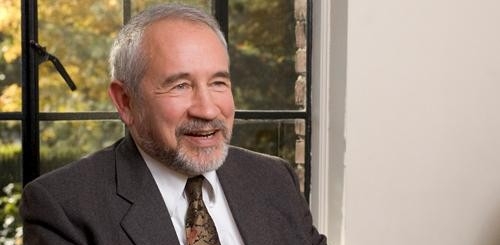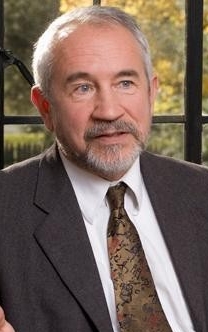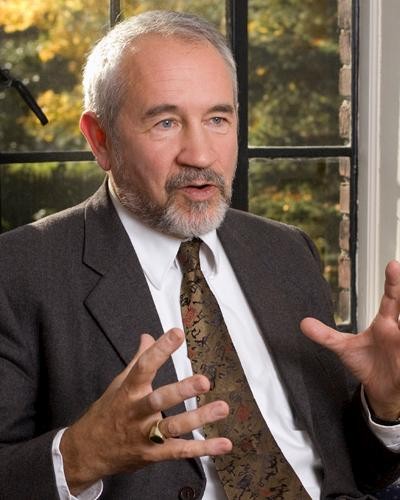"Ways of Knowing:" Re-integrating Spirituality in the Catholic University and Liberal Arts

Abstract
This talk briefly surveys the ways that the natural centrality of spirituality across the spectrum of the liberal arts and closely related sciences could also be usefully integrated within university curricula that are primarily restricted to a single dominant religious tradition.
Almost all contemporary universities seek to integrate the intellectual traditions of philosophy, theology and the sciences of nature and mathematics from pre-modern Islamic and Hellenistic heritage into their curricula. With the exception of the field of religious studies (a nascent, largely undergraduate and North American phenomenon), however, what is strikingly absent from the modern university is any comparable concern with the far-reaching intellectual and practical dimensions of spirituality that were so central to earlier Islamic and Christian civilizations. Every world religious tradition has witnessed in the past century an extraordinary reversal of the previously predominant “esoteric” social and intellectual locus of specialists in spirituality. Primary spiritual texts and related artistic and contemplative practices of each tradition are now increasingly accessible to interested publics on a truly global scale. Professor Morris will survey these important developments and consider how a wide spectrum of perspectives on spirituality could be integrated into university curricula otherwise focused on a single dominant religious tradition.
Speaker Bio

Prior to joining Boston College, James Morris held the Sharjah Chair of Islamic Studies at the University of Exeter, and he has taught previously at Princeton University, Oberlin College, Temple University, and the Institute of Ismaili Studies in Paris and London. He has served as visiting professor at the Ecole Pratique des Hautes Etudes (Paris), University of Malaya, and University of Sarajevo, and he lectures and gives workshops widely throughout Europe and the Muslim world. His most recent books include Knowing the Spirit (State Univeristy of New York Press, 2007); The Reflective Heart: Discovering Spiritual Intelligence in Ibn ‘Arabī’s ‘Meccan Illuminations (Fons Vitae, 2005); Orientations: Islamic Thought in a World Civilisation (Archetype, 2004); Ibn ‘Arabī: The Meccan Revelations (Pir Press, 2002); The Master and the Disciple: An Early Islamic Spiritual Dialogue (Institute for Ismaili Studies, 2002) and several website volumes.
Event Photos

Jim Morris at the Boisi Center


Photos by Kerry Burke, Boston College MTS Photography
Event Recap
On November 12 the Boisi Center hosted a colloquium with James Morris, an expert on Islam and professor of theology at Boston College. Morris presented the complexities of grappling with religious spirituality in the twenty-first century. Although “spirituality” is a term that is difficult to define, Morris said it is the spirit that teaches us “what we are as human beings within any of these [religious] traditions.”
Morris began his lecture by pointing out the historical shift from agrarian societies to “modern” societies. In agrarian societies, a localization of spiritual practices occurred within religious traditions both Islamic and otherwise. The presence of the divine was seen in the midst of the local human community.
Today, however, the world is globalized rather than localized. Spiritual experiences—and the understanding of what it means to be human that goes with them—cut across religious, ethnic and linguistic backgrounds. Because expressions of spirituality are no longer local, students must find explanatory contexts for understanding the new forms of spirituality to which they are being exposed, and which are often culturally and religiously foreign to them. The liberal arts curriculum provides one accessible location where students can be instructed about spirituality in a variety of its expressions.
Morris pointed out that access to spiritual texts, once the domain of experts in particular religions, are now available to the general public. Teaching the liberal arts allows them to contextualize these teachings, and they appropriate and transform these teachings into a variety of actions, such as medicine, environmentalism, peace-making and artistic
endeavors.
Read More
Further Reading
Books
Agnew, Una. With Wisdom Seeking God: The Academic Study of Spirituality, (Peeters, 2008)
Green, J.D. Augustinianism: Studies in the Process of Spiritual Transvaluation, (Peeters, 2007)
Morris, James. From Ethics and Devotion to Spiritual Realisation: Ibn ‘Arabī on ‘What Is Indispensable For the Spiritual Seeker’, Monograph, pp. viii + 37. (Kuala Lumpur: University of Malaysia, Centre for Cilisational Dialogue, 2007)
Articles
Ostad Elahi on Spirituality in Everyday Life
Surrender and Realisation: Imam ‘Ali on the Conditions for True Religious Understanding, Rūh al-Dín: Islam and the Religio Perennis, I:1 (2005), pp. 1-13
Remembrance and Repetition: The Spiritual Foundations of Islamic Aesthetics, Sufi Magazine, no. 47 (2000), pp. 15-19

